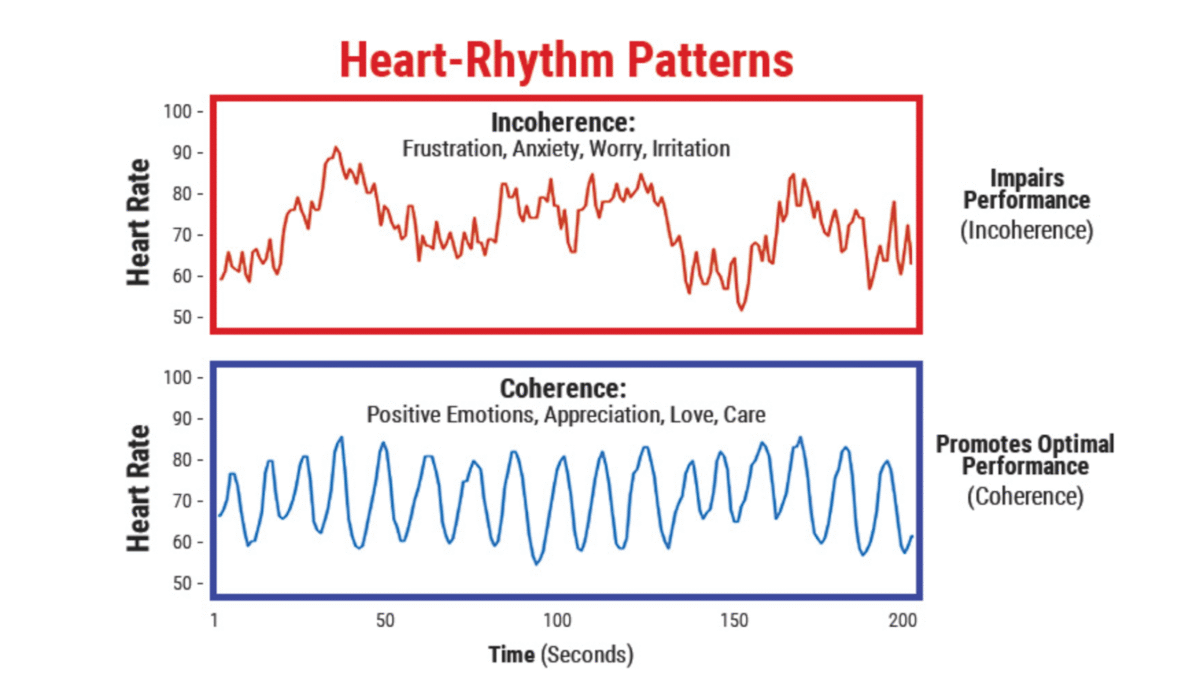Heart rate variability and gut health are deeply connected through the gut-brain axis. HRV might sound technical, but it’s one of the most powerful windows into how your nervous system — and your gut — are doing. If you’ve never heard of HRV, don’t worry. It’s simple to track, rooted in science, and can tell you a lot about how well your body bounces back from stress.
"The body keeps the score."
— Dr. Bessel Van der Kolk
How Heart Rate Variability Impacts Your Gut-Brain Connection
Hello everyone, it’s Dr. Leybelis here! Today, I want to dive into an often overlooked but fascinating concept in health: Heart Rate Variability (HRV). And I say overlooked only because it can sound a little “wooo wooo” and because it is also relatively easy to do and accessible to us all. I will say this – all of this stuff is backed by science, not just a few papers here and there, but many in varying fields of medicine and health spanning decades.
But because it isn’t anything fancy and quite frankly isn’t a money generating tool in healthcare, it doesn’t get any attention.
You may be asking, “What does heart rate have to do with gut health?” Surprisingly, the connection is much deeper than you might think.
HRV refers to the variation in time between each heartbeat. It’s not just about the speed of your heartbeat but also how adaptable and resilient your body is to stress. HRV is a direct reflection of your nervous system’s activity, particularly the balance between the sympathetic (fight or flight) and parasympathetic (rest and digest) branches of the autonomic nervous system (Sadowski et al., 2020)¹.
When stress hits, the sympathetic nervous system kicks into high gear, releasing cortisol and other stress hormones. These hormones are pro-inflammatory and can harm your health over time. In contrast, the parasympathetic system promotes relaxation, digestion, and healing by counteracting the stress response. A balanced or sometimes referred to as a coherent HRV indicates that these two systems are in harmony, supporting both your mental and physical health (Sadowski et al., 2020)¹.
"A flexible, responsive heart is a healthy heart - and HRV is how we measure it."
— HeartMath Institute
Heart Rate Variability and Gut Health: How They’re Connected
Now, let’s explore how your gut and brain communicate. The vagus nerve, a major part of the parasympathetic nervous system, serves as the communication highway between your gut and brain. When HRV is healthy, it indicates good vagal tone, meaning the vagus nerve is functioning optimally. This balanced communication plays a key role in promoting digestive health (Sadowski et al., 2020)¹.
Here’s how a healthy HRV benefits your digestive system:
- Enhanced Enzyme Production: A healthy vagus nerve stimulates the release of digestive enzymes, which are crucial for breaking down food effectively (Sadowski et al., 2020)¹.
- Improved Gut Motility: When your nervous system is balanced, it helps food move smoothly through your intestines, reducing issues like gas, bloating, constipation, and diarrhea (Sadowski et al., 2020)¹.
- Reduced Inflammation: Lower stress hormones due to a healthy HRV can significantly reduce inflammation in the gut, which is essential for managing conditions like inflammatory bowel disease (IBD) and irritable bowel syndrome (IBS) (Sadowski et al., 2020)¹.
- Reduced Stress on the Gut: High HRV correlates with reduced stress on your digestive system, helping to prevent dysbiosis (an imbalance in gut bacteria), which can lead to further digestive issues (Pereira et al., 2024)².
Heart Rate Variability isn’t just a metric—it’s a real-time reflection of how well your body adapts to stress and recovers from it. The good news? Like resilience, HRV can be improved with the right practices.
One key aspect is neuroplasticity, the brain’s ability to adapt and rewire itself in response to experiences. By exposing yourself to new experiences and actively seeking out challenges, you stimulate neural connections, making your brain more adaptable and resilient.
Beyond the Gut: The Whole Body Benefits of HRV
HRV is more than just a marker of digestive health—it’s a powerful indicator of overall well-being.
This part is incredibly exciting, because research shows that a healthy HRV is linked to a lower risk of heart disease, high blood pressure, and even better outcomes for cancer patients (Pereira et al., 2024)². How exciting is that!? I know it can sound a little crazy and almost too simple – but optimizing HRV is truly a key to wellness and longevity.

How to Improve Your HRV: Simple, Effective Strategies
The good news is that improving your HRV is within your control. Here are several natural and effective ways to boost your HRV:
- Deep, Slow Breathing: Techniques like diaphragmatic breathing (inhaling for 6 seconds, exhaling for 6 seconds) can help regulate HRV, making it more stable and coherent (Pereira et al., 2024)².
- Meditation and Mindfulness: Regular meditation and mindfulness practices have been shown to improve HRV by calming the nervous system and reducing stress (Pereira et al., 2024)².
- Regular Exercise: Physical activity positively impacts HRV by strengthening the cardiovascular and nervous systems, enhancing resilience to stress (Sadowski et al., 2020)¹.
- Quality Sleep: Prioritize restful, consistent sleep. It plays a vital role in regulating HRV and promoting recovery (Pereira et al., 2024)².
- Balanced Diet: A well-rounded diet supports your nervous system and overall health, contributing to better HRV (Sadowski et al., 2020)¹.
Tools and Resources for Monitoring Your HRV
If you’re interested in tracking your HRV, I recommend checking out the HeartMath Institute. Their research and resources can guide you in understanding HRV and how to monitor it. They even have an app to help you track your progress (Sadowski et al., 2020)¹.
Curious about building emotional resilience to better support your gut health? Check out my blog on thriving in adversity here.
Empowerment Through Awareness
Ultimately, becoming aware of how your body responds to stress and understanding the impact of HRV on your health is the first step toward empowerment. By incorporating practices that balance your nervous system, you can take control of your heart rate variability and gut health, improving not only your digestion but also your overall well-being.
Ready to explore how personalized support can help you optimize your HRV and feel your best?
Book your FREE 20-minute GI Health Consultation today to start your journey toward resilience and better digestive health.
Thank you for taking the time to read — I look forward to supporting your journey to better gut health!
References
- Sadowski, A., Dunlap, C., Lacombe, A., & Hanes, D. A. (2020). Alterations in Heart Rate Variability Associated with Irritable Bowel Syndrome or Inflammatory Bowel Disease: A Systematic Review and Meta-Analysis. Clinical and Translational Gastroenterology.
URL: https://api.semanticscholar.org/CorpusID:229349833
2. Pereira, A. G., Fu, L., Xu, W., Gharibans, A. A., O’Grady, G., & O’Grady, G. (2024). The Effects of Heart Rate Variability Biofeedback on Functional Gastrointestinal Disorders: A Scoping Review. medRxiv.
URL: https://api.semanticscholar.org/CorpusID:271329487

